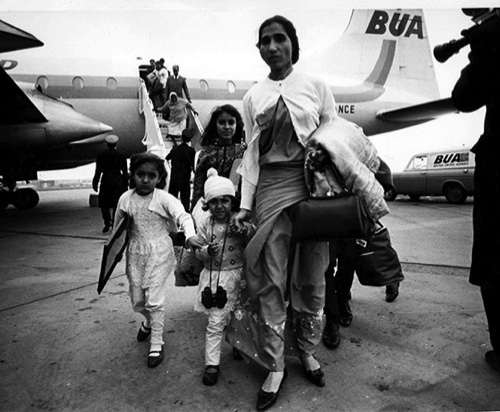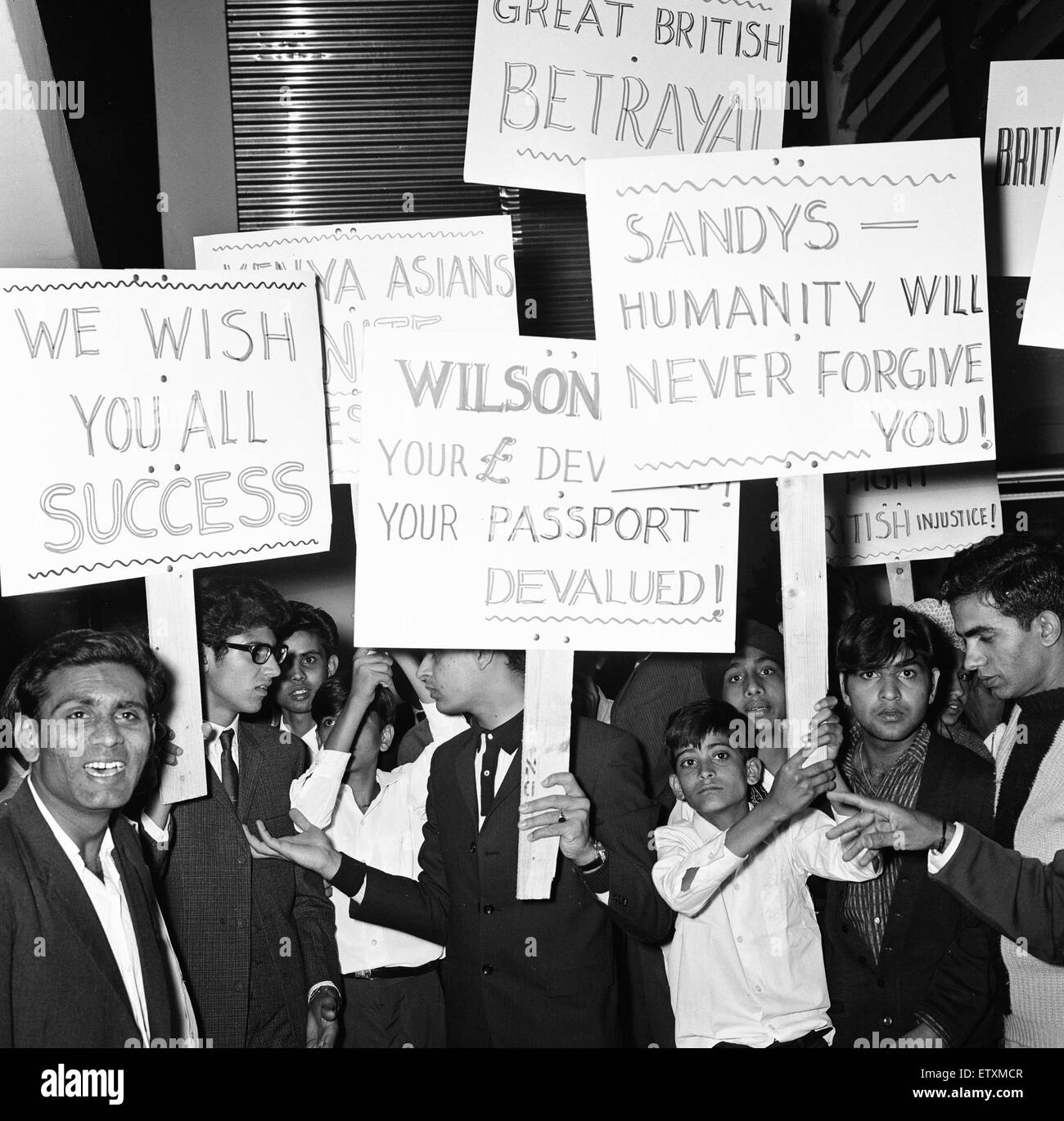The Jews of Africa
Britain under Harold Wilson was largely tolerant and accepting of the influx of former imperial subjects from every corner of Britain's old empire. He passed Britain's first race relations act in 1965. This outlawed the 'colour bar' in public places and discrimination in public services and incitement for racial hate crimes. Although there was simmering unease amongst the British people, the new arrivals from eastern Europe were accepted almost without question, while coloured migrants largely from the Caribbean, India and Pakistan were grudgingly tolerated.
However, this relative harmony amongst immigrants and the British was shattered by a racist campaign waged by Africans against Asian settlers in Kenya. Kenya had won independence in 1963 under Jomo Kenyatta, and initially thrived as a relatively liberal market economy. 185,000 Asians lived within the Kenyan state. They had mostly settled during British rule and were more affluent than the indigenous Kenyans. They were established in such professions as medicine and law enforcement. They also had full British passports giving them absolute right of access to Britain.
the Kenyan Asians were dubbed 'the jews of Africa' by the British press due to the numerous parallels between them and the victims of Nazism in the 1930s and 40s. Much like the Jews of Europe, they were a vigorous and prosperous group who were the object of nationalist and racial suspicion. They were also often accused of dishonesty
The persecution against them grew steadily in a manner that echoed Nazi persecution of the Jews. The Asians were deprived of their jobs in the civil service and faced increasingly sinister demonisation by propaganda.
Inevitability, they began to make towards Britain, an obvious refuge from the oncoming violence. Throughout 1967, they arrived by plane at the rate of about 1,000 a month. The newspapers smeared the influx across the front pages and the television views showed huge crowds waiting for British passports and flights. This raised public fears and awoke the embedded racism within much of the traditional British conscience. The Tory shadow defence secretary Enoch Powell, stirred resentment at the arrivals by claiming that half a million East African Asians could enter, and called for an end to work permits and a blanket ban on dependents entering Britain. However, at this time other Tories felt they were bound by the promise they made at the onset of Kenya's independence. This division was echoed in Wilson's ruling Labour government. However, Jim Callaghan, the new Home Secretary was determined to respond to the growing public anxiety and anger at the migration. This would mean cancelling the right of Kenyan Asians to enter and leaving them at the mercy of the forces of state-sponsored racism and terror.
By 1968, when 2,000 Kenyan Asians were arriving, the Tory politician who made the promise originally, Sandys, was leading calls to cancel it. In response to this pressure, Callaghan decisively acted with the Commonwealth Immigrants Act, which effectively slammed the door to former colonials. This not only broke the word of the British government, it also left 20,000 people stateless in a perilous part of Africa that no longer wanted them. Despite the controversy and shame of this legislature, which was mainly proposed to appease racist hysteria, 72% of the British public supported the act (according to polls).
Bibliography
However, this relative harmony amongst immigrants and the British was shattered by a racist campaign waged by Africans against Asian settlers in Kenya. Kenya had won independence in 1963 under Jomo Kenyatta, and initially thrived as a relatively liberal market economy. 185,000 Asians lived within the Kenyan state. They had mostly settled during British rule and were more affluent than the indigenous Kenyans. They were established in such professions as medicine and law enforcement. They also had full British passports giving them absolute right of access to Britain.
 |
| Jomo Kenyatta |
the Kenyan Asians were dubbed 'the jews of Africa' by the British press due to the numerous parallels between them and the victims of Nazism in the 1930s and 40s. Much like the Jews of Europe, they were a vigorous and prosperous group who were the object of nationalist and racial suspicion. They were also often accused of dishonesty
The persecution against them grew steadily in a manner that echoed Nazi persecution of the Jews. The Asians were deprived of their jobs in the civil service and faced increasingly sinister demonisation by propaganda.
Inevitability, they began to make towards Britain, an obvious refuge from the oncoming violence. Throughout 1967, they arrived by plane at the rate of about 1,000 a month. The newspapers smeared the influx across the front pages and the television views showed huge crowds waiting for British passports and flights. This raised public fears and awoke the embedded racism within much of the traditional British conscience. The Tory shadow defence secretary Enoch Powell, stirred resentment at the arrivals by claiming that half a million East African Asians could enter, and called for an end to work permits and a blanket ban on dependents entering Britain. However, at this time other Tories felt they were bound by the promise they made at the onset of Kenya's independence. This division was echoed in Wilson's ruling Labour government. However, Jim Callaghan, the new Home Secretary was determined to respond to the growing public anxiety and anger at the migration. This would mean cancelling the right of Kenyan Asians to enter and leaving them at the mercy of the forces of state-sponsored racism and terror.
 |
| Kenyan Asians arrive in Britain |
By 1968, when 2,000 Kenyan Asians were arriving, the Tory politician who made the promise originally, Sandys, was leading calls to cancel it. In response to this pressure, Callaghan decisively acted with the Commonwealth Immigrants Act, which effectively slammed the door to former colonials. This not only broke the word of the British government, it also left 20,000 people stateless in a perilous part of Africa that no longer wanted them. Despite the controversy and shame of this legislature, which was mainly proposed to appease racist hysteria, 72% of the British public supported the act (according to polls).
 |
| Kenyan Asians demonstrate against the new legislature at Nairobi Airport in 1968 |
Bibliography
'The Fortunes of Africa' - Martin Meredith
'A History of Modern Britain' - Andrew Marr
'Bloody Foreigners' - Robert Winder
Comments
Post a Comment